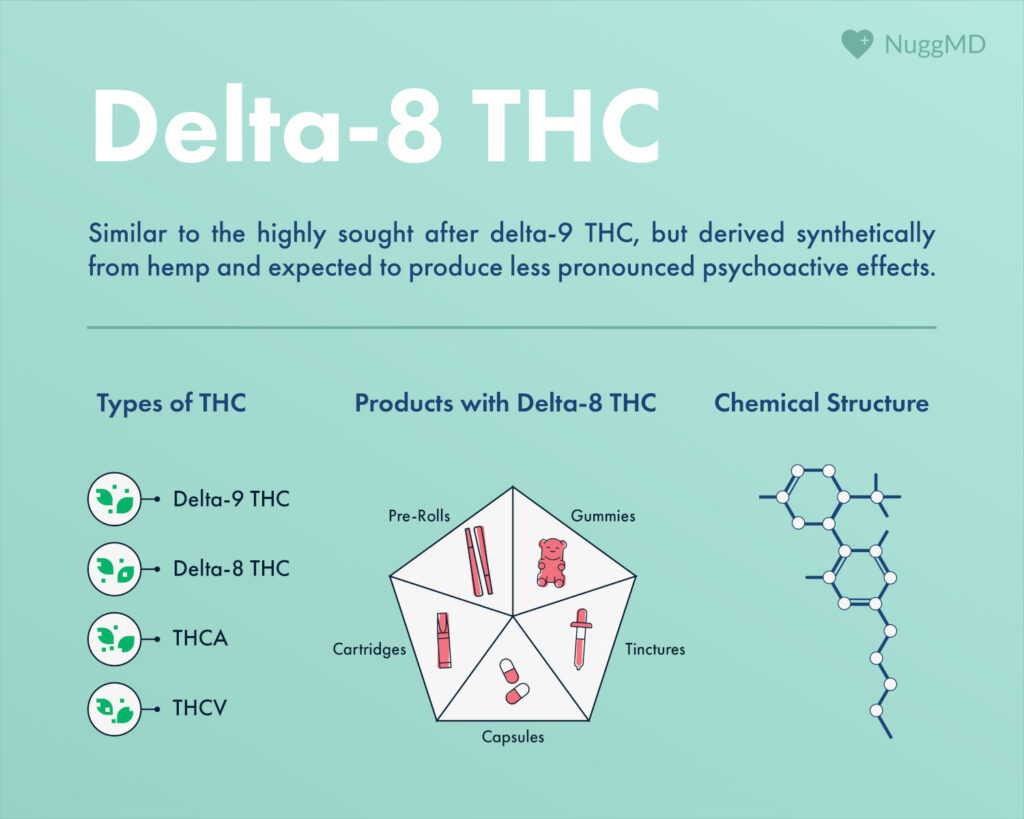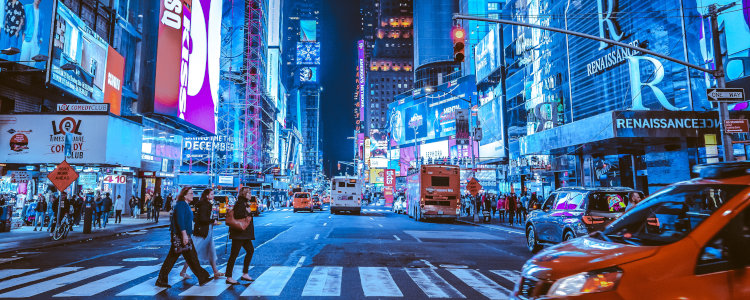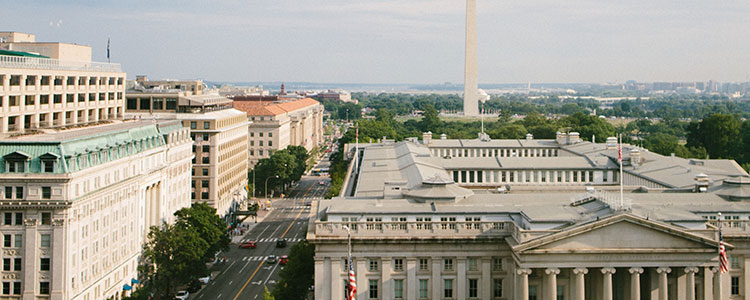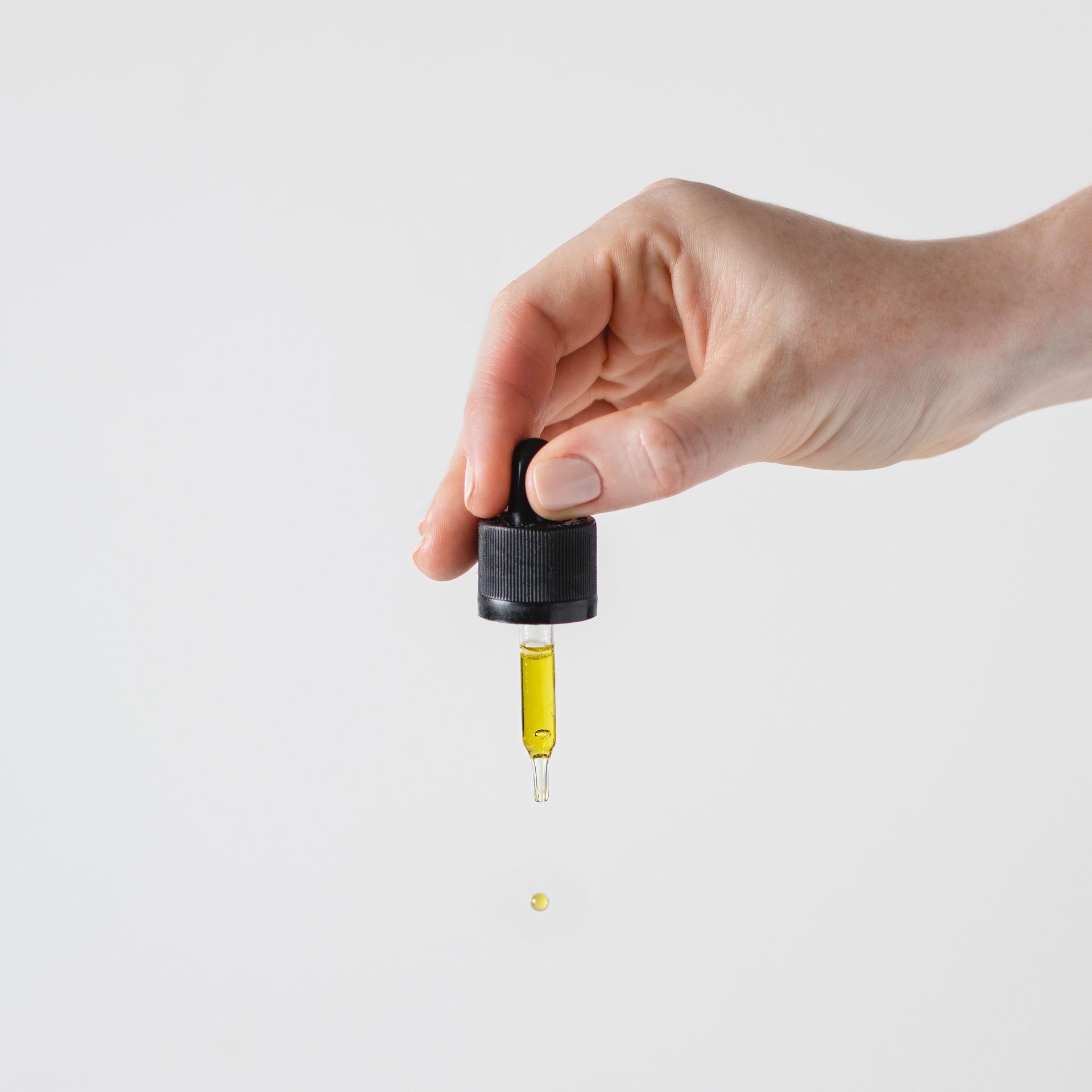Delta 8 is currently one of the more recognizable minor cannabinoids in the cannabis market limelight. It is naturally found in the plant in small amounts. However, it can also be synthetically derived from other cannabinoids, like CBD.
Users who have tried Delta 8-infused products report effects similar to those induced by high-THC cannabis products, like relaxation, euphoria, and pain relief.
Tetrahydrocannabinol (THC) and Delta 8 THC differ in their molecular structure. The double bond in Delta 8 is located between carbon atoms 8 and 9, whereas the double bond in THC is between carbon atoms 9 and 10. This seemingly inconsequential difference influences how each cannabinoid binds to the CB1 receptor of the endocannabinoid system and, therefore, how the body responds.

The other significant difference is Delta 8’s federally legal status which happened with the passing of the Farm Bill in 2018.
The ability to derive Delta 8 THC from federally legal hemp – along with its potential to induce similar intoxicating effects to THC – has made it a popular cannabinoid for consumers and manufacturers alike. It has also caught the Federal government's attention, which is currently reevaluating its legal status.
With the DEA reconsidering restrictions, we wanted to understand how a change in classification would affect consumers. We started by determining which states were most interested in Delta 8.
Our Methodology
To better understand which states are most interested in Delta 8, we reviewed Google Trends data in all 50 states from the last 12 months for all terms including and related to “Delta 8”. We then separated these terms into ten categories, each given a score based on search intent and relevance.
Delta 8 terms associated with products and making a purchase scored the highest, while more generic cannabis terms had a lower impact on a state’s score. We totaled our findings, and the results are below.
The Most Delta 8 Obsessed States

Differences in Delta 8’s legal status and availability from state to state have resulted in significant variances in D8 interest.
So, what states are most obsessed with Delta 8 THC?
- Florida
The Sunshine State comes in as the most Delta 8-obsessed state with a score of 339. Most of the online searches in the state pertain to products (‘delta 8 gummies,’ ‘delta 8 carts,’ and ‘delta 8 disposable’). The state also saw significant searches regarding the semi-synthetic cannabinoid’s legality. Google searches in the state even included comparisons to other lesser-known, up-and-coming cannabinoids, like HHC and THC-O.
- North Carolina
North Carolina is second, with a score of 332. The state prohibits both medical and recreational use, which may explain its citizens' interest in the federally legal Delta 8 cannabinoid. The Tar Heel State saw searches for ‘Delta 8 flower,’ ‘Delta 8 weed, ‘‘Delta 8 vape,’ and ‘Delta 8 gummies’ (among other product-focused and legal search terms).
- Georgia
Georgia rounds out the top 3 most Delta 8-obsessed states with a score of 325. The state recently legalized medical marijuana use, but adult-use consumers looking for THC are left with hemp-derived options like Delta 8. While Florida and North Carolina searches focused primarily on products and legal questions, Georgia searches imply a more general curiosity for the cannabinoid, with a higher volume of searches comparing it to other cannabinoids like Delta 9 and Delta 10.
Other states interested in Delta 8 THC include Texas (304), Tennessee (256), Ohio (253), New York (251), Virginia (239), South Carolina (238), and Indiana (232). A majority of these states either completely restrict adult-use cannabis or have a new or restricted marijuana status.
- Texas has the most searches of these states seeking general information about delta 8, including ‘delta 8 Reddit’ and ‘how much THC is in delta 8.’
- Tennessee's search terms weigh heavily toward legal questions, like ‘does delta 8 show up on drug tests’ and ‘is delta 8 legal in Tennessee.’
- New York searches focused on finding products, including ‘delta 8 near me’ and a variety of terms focused on delta 8 vapes, carts, disposables, and flower.
Delta 8 has become an increasingly popular cannabinoid, especially in states where access to recreational cannabis is restricted. Its semi-synthetic nature and its ability to produce similar but milder effects to THC have made it an ideal option for consumers looking to access the potential benefits of THC in places where it is unavailable.
Our research has shown that states with the highest number of searches for Delta 8 either have legal restrictions on recreational cannabis or their programs may be in transition.
The States Least Interested in Delta 8 THC
On the other end of the spectrum, several states showed little to no interest in Delta 8.
Alaska takes the title as the state with the lowest interest in Delta 8 THC with a score of 0 and no Delta 8 searches of any kind tracked in our analysis.
Eight states tied with a score of 12: Rhode Island, Vermont, Montana, Delaware, Washington DC, Idaho, Maine, and New Hampshire.
So, what might cause a lack of interest in Delta 8 THC?
Of the lowest-scoring states, 5 of them (Alaska, Rhode Island, Vermont, Montana, and Delaware) also fall into the ranking for the country’s smallest population. And 7 of the 9 lowest-scoring states have access to recreational cannabis.
Conclusion
Our findings reveal an interesting trend in search terms.
States with access to legal cannabis and smaller populations expressed a reduced interest in Delta 8 THC. Delta 8 searches in these states were generic and informational.
States where cannabis usage is restricted or prohibited, and those with some of the country's largest populations, had the highest D8 scores. Searches in these states focused primarily on the products and the legal status of Delta 8.
The information in this article and any included images or charts are for educational purposes only. This information is neither a substitute for, nor does it replace, professional legal advice or medical advice, diagnosis, or treatment. If you have any concerns or questions about laws, regulations, or your health, you should always consult with an attorney, physician or other licensed professional.




